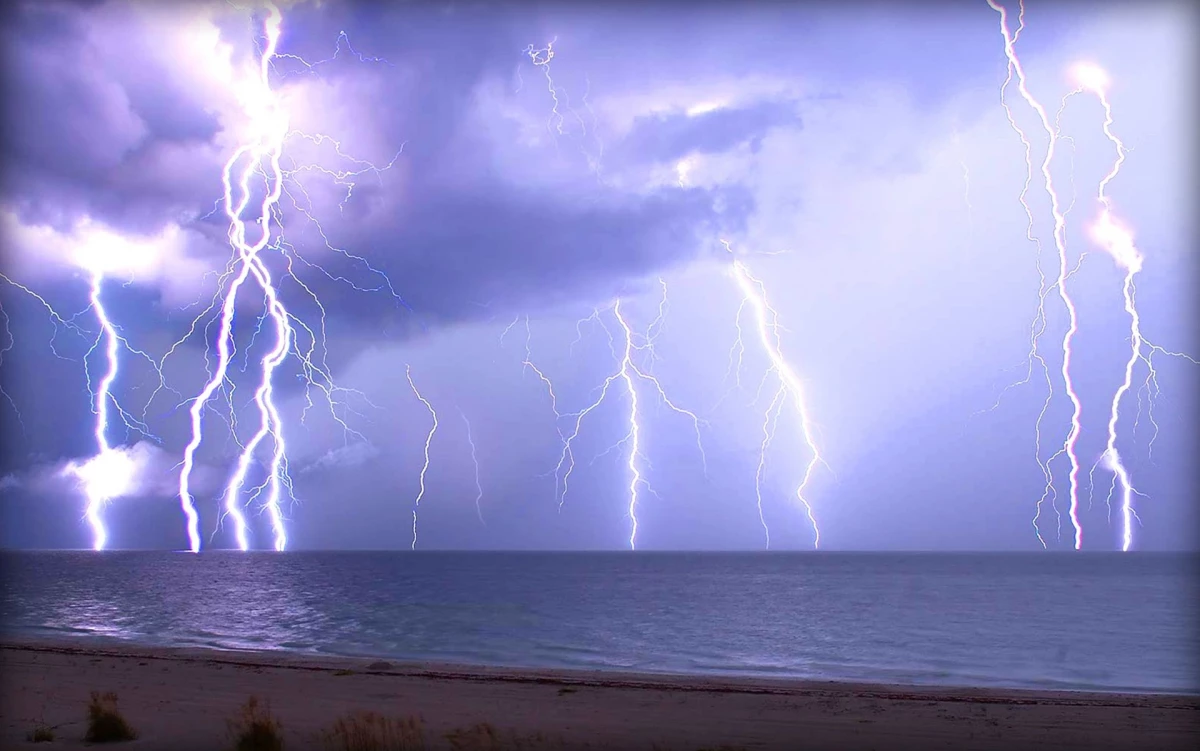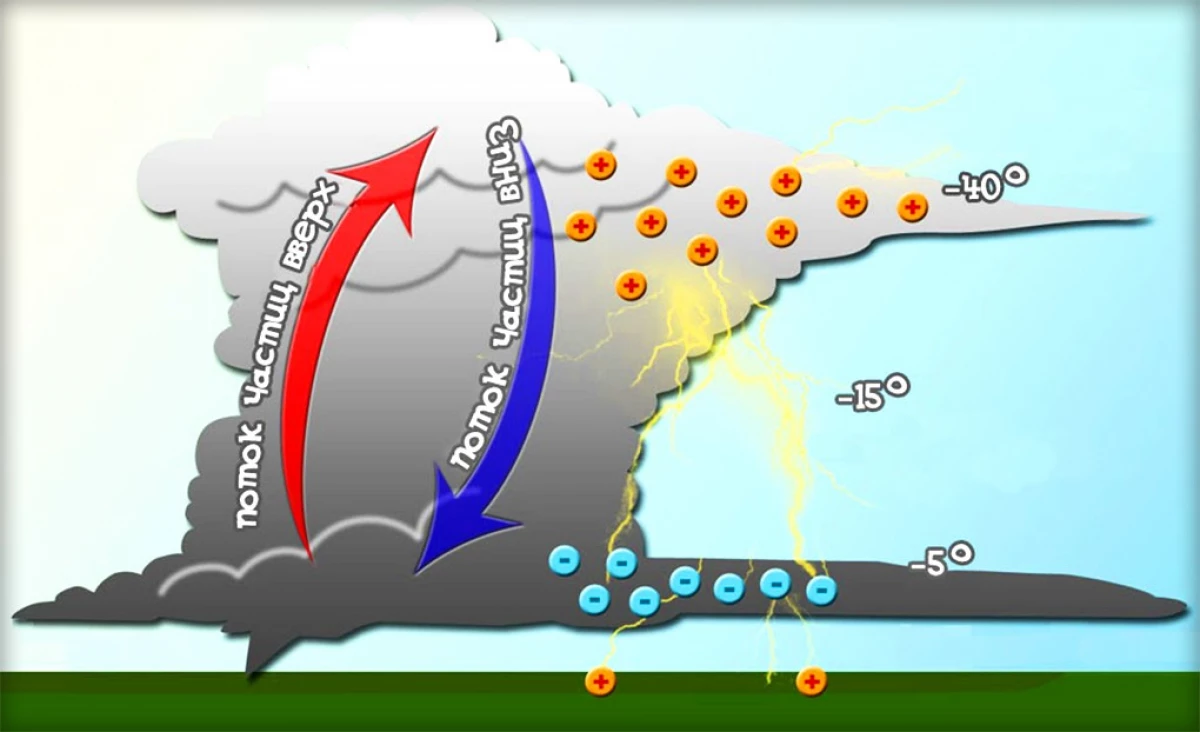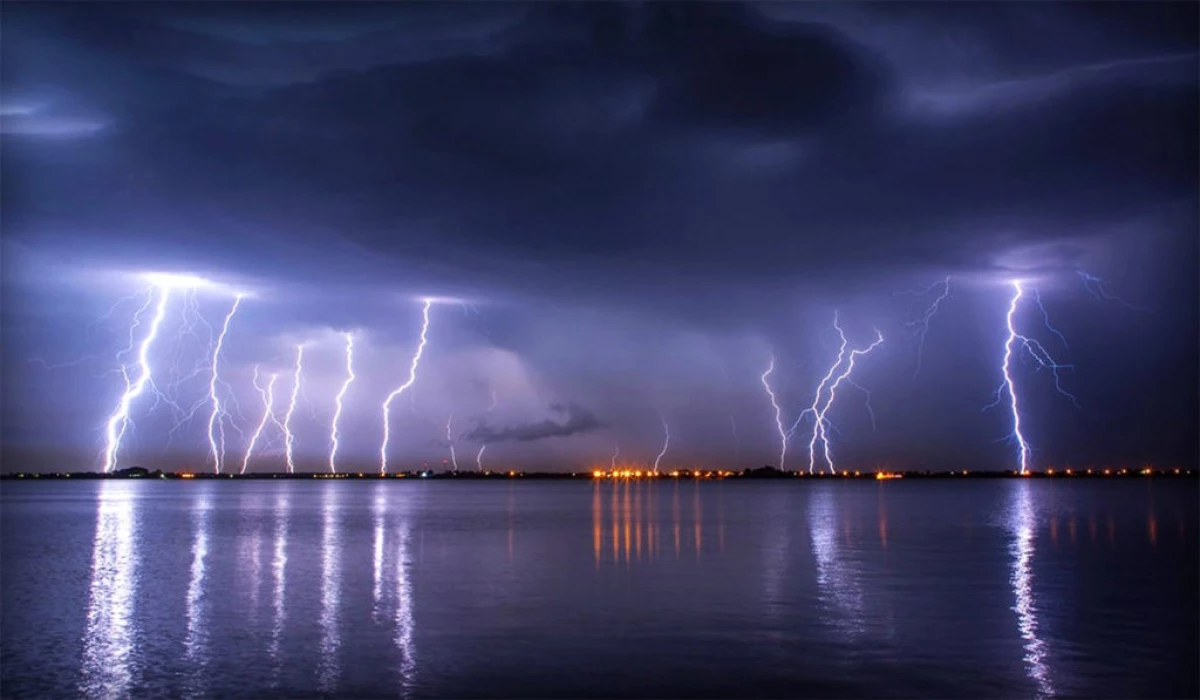
Lightning is a powerful electric spark discharge, which occurs during a thunderstorm, is accompanied by thunder, as well as bright outbreaks of light. Finding in the trees, she usually provokes them to fire. This means that lightning is able to heat the environment, including reservoirs.
Mechanism and zipper properties
Lightning arise as a result of electrification of clouds. Their discharges appear inside the clouds, between the cloud and the surface of the Earth or neighboring clouds. Immediately before the discharge, the potential difference arises between the clouds or clouds and land - depending on the type of lightning.
Electrification in the clouds occurs due to a kind of "friction" of the smallest particles - iceclocks and water drops, of which the thunderstorm cloud consists. Its upper part is at an altitude of about 6-7 km, the lower - from 0.5 to 1 km. The clouds are constantly moving due to the movement of air flow. Thus, the lower part of the cloud has a negative charge, and the upper is positive.

Interesting fact: lightning is often hit to objects on land. However, the highest probability of lightning strike in the world is celebrated above the Venezuelan District of the Katatumbo River in Lake Maracaibo. Their frequency - 250 discharges per square kilometer per year.
The voltage of the electric field of the thunder cloud is very high - it is measured in millions and billions of volts. When areas with opposite charges are too close to each other, lightning discharge occurs. It is characterized by a huge strength of the current - from 10,000 to 500,000 amps. The voltage and the strength of the current depend on many factors, for example, the lengths, the duration of the zipper, the size of the cloud in which it was formed.
How to calculate the heating temperature of the reservoir when the lightning strike?
The discharge is accompanied by the allocation of a huge amount of energy that reaches a billion Jowle. The bright glow indicates a high temperature in the zipper channel - about 30,000, and it is several times the temperature on the surface of the Sun.
To estimate the thermal effect of electric current use the physical law of Joule-Lenza, which scientists have established independently from each other at different times:
Q = i2RT, where q is the amount of heat, I is the current strength, R - resistance, T - time interval
As the average current, you can take a value of 200,000 amps. The time interval is the duration of lightning - 0.2 seconds on average. To find out the resistance of water in the pond, its radius, depth and resistivity (50 ohm m) are necessary. If we adopt the depth of the pond for 1 meter, the radius is 25 meters, the water resistance will be 0.025 ohms.

The amount of highlighted heat is 2.04 x 108 j. In the pond of the specified size, the mass of water is about 2 tons, and its specific thermal conductivity is 4200 J / (kg. ℃). Knowing all these parameters, with the help of the formula of the specific thermal conductivity, you can find out how much the water is warm in the pond, namely, 0.024 ℃.
This indicator is too small. But if you imagine that more powerful zipper (500,000 amps) has hit the pond with a maximum duration (over 7 seconds), then water will heat up at about 5. It is noteworthy that, for example, on Jupiter zipper appear much less often, however, they are much more powerful. This category could heat water at 25.
The above calculations are only approximate, as they have a lot of errors. Water evaporation should be taken into account at the moment of the lightning strike, the slow propagation of heating and other factors. Therefore, if the discharge falls into the pond, the water in it is warmed insignificant.
Channel site: https://kipmu.ru/. Subscribe, put heart, leave comments!
